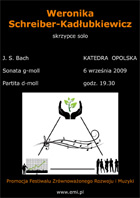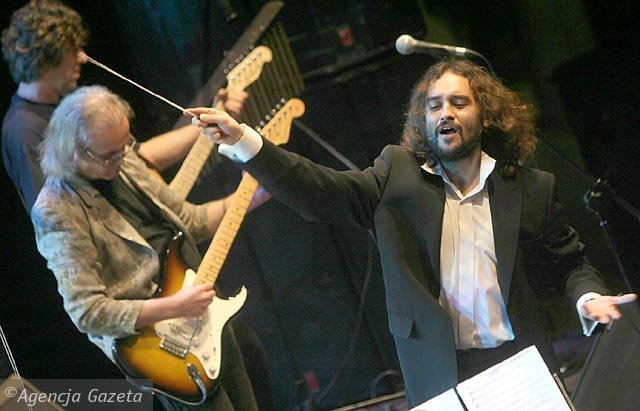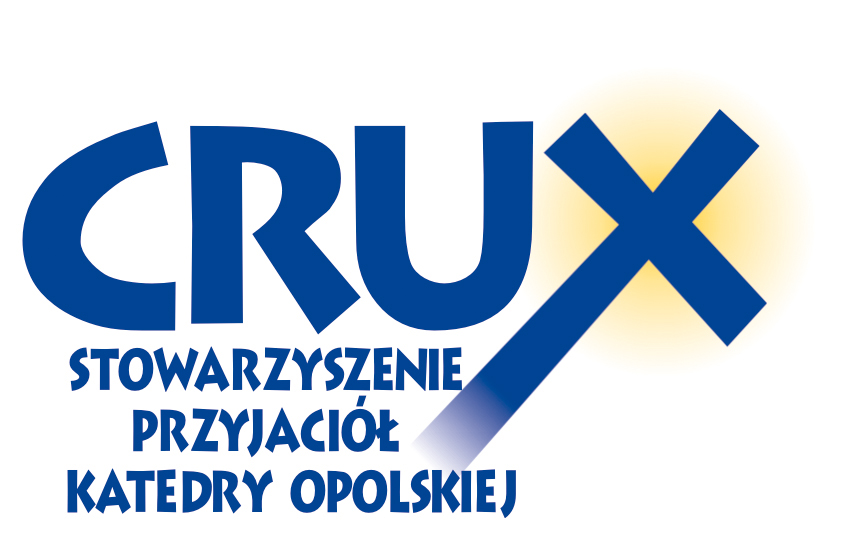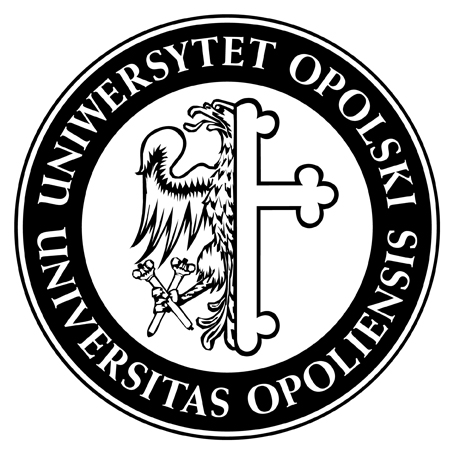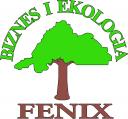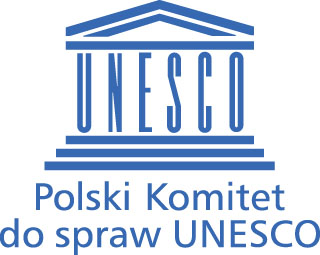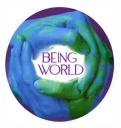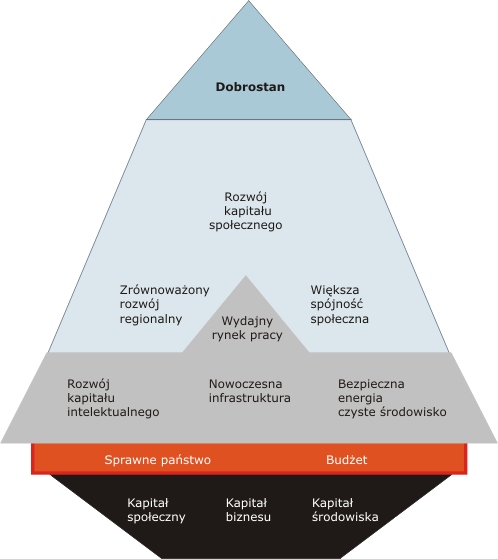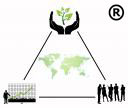In 2013 European Commission published the “Tips and Tricks for Advisors – Corporate Social Responsibility for Small and Medium-Sized Enterprises” . Quatation from this guidebook:
“This guidebook is based on the 2011 understanding of corporate social responsibility (CSR) developed by the European Commission, in which it is defined as, “the responsibility of entrprises for their impacts on society”. Furthermore it states that “Respect for applicable legislation, and for collective agreements between social partners, is a prerequisite for meeting that responsibility. To fully meet their corporate social responsibility, enterpises should have in place a process to integrate social, environmental, ethical, human rights and consumer concerns into their business operations and core strategy in close collaboration with their stakeholders, with the aim of:
– maximising the creation of shared value for their owners/shareholders and for their other stakeholders and society at large;
– identifying, preventing and mitigating their possible adverse impacts.
The complexity of that process will depend on factors such as the size of the enterprise and the nature of its operations. For most small and medium-sized enterprises, especially micro-enterprises, the CSR process is likely to remain informal and intuitive.””
The strategic thinking is the base of the implementation of CSR, we can say also the sustainable development rules. The way of implementation depends of the kind of enterpise but is the chalenge for all, the biggest and the smallest, even self-employment enterprises.
Everybody, every person, has to change the way of thinking and acting…
Kategoria: Sustainable development Blog, CSR | Komentarze wył. »
Kategoria: CO2 / Zmiana klimatu | Komentarze wył. »
Kategoria: Sustainable development Blog | Komentarze wył. »
Czy zrównoważony rozwój to tylko hasło związane z funduszami unijnymi, czy też “prawidło” życia naszych czasów?
Uważam że:
- – naukowcy spotykają się na konferencjach, gdzie we własnym gronie dzielą się swoimi przemyśleniami na temat zrównoważonego rozwoju, bez szerokiego przekazu dla mediów, polityków i dla społeczeństwa;
- – w urzędach powstają dokumenty planistyczne niezbędne w procedurach pozyskiwania funduszy unijnych, w których zapis na temat zrównoważonego rozwoju ma miejsce, bo jest tam niezbędny ze względu na politykę Unii Europejskiej;
- – strategię zrównoważonego rozwoju duże przedsiębiorstwa publikują na stronach internetowych, ale głównie w celach marketingowych;
- – średnie i małe przedsiębiorstwa nic na ten temat nie wiedzą lub uważają z góry, że ich na to nie stać, że mają większe własne problemy;
- – wartości odżywcze żywności są coraz gorsze, rolnictwo jest bardziej nastawione na zysk niż na gospodarkę ziemią i produktami rolnymi w duchu zrównoważonego rozwoju;
- – koncerny farmaceutyczne i usługi medyczne głównie liczą się z zyskiem;
- – uczelnie zaznajamiają studentów z problematyką zrównoważonego rozwoju;
- – szkoły zaznajamiają uczniów z ekologią;
- – media wolą nagłaśniać wypadki transportowe i wpadki polityków…
Kategoria: Sustainable development Blog, CSR | Komentarze wył. »
Najnowsza Strategia Unii Europejskiej EUROPA 2020 – strategia na rzecz inteligentnego i zrównoważonego rozwoju sprzyjającego włączeniu społecznemu – to strategia w zasadzie implementująca strategię Sustainable Development Strategy (SDS). Mówi wprawdzie o innych trzech filarach, ale wczytując się dokładnie w treść strategii EUROPA 2020 znajdujemy implementację podejścia opartego na rozwoju kapitału biznesu, rozwoju kapitału społecznego i ochronie środowiska (a więc ochronie i rozwoju kapitału środowiska). Czytaj całość …
Kategoria: Sustainable development Blog | Komentarze wył. »
Sustainable Development and Music Festival, Opole 2010
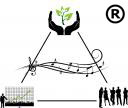 Signal of the Festival ZR/SD-M
Signal of the Festival ZR/SD-M
The co-organizers:
The goals:
The creation of the platform of reflections, new ideas and education.
The promotion of the Polish end the others business representatives and communes which are on sustainable development road.
The strengthening of cooperation between different actors of sustainable development implementation process.
The creation of education platform, international exchange of experience, expertise, culture.
The holistic process of education for sustainable development as lifelong learning process.
The promotion of music as a tool for imagination, creativity, innovation development, tool supporting changes of our consciousness,
The promotion of practices and techniques for human development.
The promotion of Opole Region.
The inauguration of yearly Festival is 7th September 2010.
“Sustainable Development – vision and practice in XXI century” workshops will be one of the form of realization of the Festival.
Programme of the Festival you can see in category programme.
The Festival is under the auspices of:
The media patronage:
Manager of the Festival: Wanda Pazdan
Artistic Manager: Weronika Schreiber-Kadłubkiewicz
EMI manage the Festival office.
We cordially invite SPONSORS. There are three packages of services:
You can help us to build a powerful network through a series of meetings, discussions, concerts, trainings and events where participants will have opportunities to enrich creativity and to help generate new possibilities for everybody.
Economical recession it is a danger and an area of new possibilities.
The implementation of sustainable development, new technologies, new organizational solutions, as well changes of our awarness – it is an area of new possibilities.
Creativity, energy efficiency, material efficiency of production and consumption, climate change, new energy, health care, psychology and music, as tools for creativity development, it is a thematic framework of ZR/SD-M Festival .
Kategoria: Festival ZR/SD-M | Komentarze wył. »
“Biznes i Ekologia” and EMI company convinced that a commune [in Polish: gmina, in other countries also called a municipality or township], as a basic self-government unit, has a huge impact on saving Our Planet and development of the human species,
announce the Competition for the title of:
“SUSTAINABLE DEVELOPMENT COMMUNE”
ZR/SD Commune 2010, for short
under auspices of:
Marszałka Województwa Opolskiego Prezydenta Miasta Opola
Polski Komitet ds UNESCO Business Centre Club
COMMITMENT TO EUROPE BEING WORLD
The goal is to promote system solutions adopted in communes, as well as communes themselves which:
– chose to start out on the sustainable development course,
– are known for their superior management culture,
– in management take into account capital in the classical meaning of the word but also global human capital and natural capital of the globe,
– stimulate development of innovative products/services which deserve to be called sustainable development products/services.
Assessment criteria for the “ZR/SD Commune 2010” title stem from the definition of ZR/SD Commune specified by EMI.
The results of the Competition will be announced in 2010 during one of the events of the Festival of Sustainable Development and Music in Opole (ZR/SD-M Festival). The winners will receive diplomas and throughout 2010 will be entitled to use the Winner of ZR/SD Commune 2010- Competition (Sustainable Development Commune) graphic symbol.
The Registration Form for Candidates for the title “ZR/SD Commune 2009” is published on EMI’s website. Registration will be accepted till April 30, 2010. The Application Form for 2010 will be accepted till June 30, 2010.
Apart from experts from EMI and Partners also a group of invited specialists and interested Internet users will participate in the assessment process, and they will be provided with a special form at EMI’s website for selecting the winners in October and November 2010.
All COMMUNES OF EUROPE are cordially invited to participate in the Competition!
All Internet users are cordially invited to select their candidates for winning!
Some Rules for the Edition of ZR/SD Commune 2010 Competition
Organizers:
Kategoria: Competition Commune ZR/SD | Komentarze wył. »
“Biznes i Ekologia” [“Business and Ecology”] together with EMI company, convinced that people and business are leaders in saving Our Planet and development of the human species,
announce the Competition for the title of:
“SUSTAINABLE DEVELOPMENT MANAGER”
ZR/SD Manager 2010, for short
under auspices of:
Marszałka Województwa Opolskiego Prezydenta Miasta Opola
Polski Komitet ds UNESCO Business Centre Club
COMMITMENT TO EUROPE BEING WORLD
The goal is to promote individuals and companies who:
– chose to start out on the sustainable development course,
– are known for their superior management culture,
– in management take into account capital in the classical meaning of the word but also global human capital and natural capital of the globe,
– stimulate development of innovative products/services which deserve to be called sustainable development products/services.
Assessment criteria for the “ZR/SD Manager 2010” title stem from the definition of ZR/SD Manager specified by EMI.
The competition is an amended edition of the Competition/Popularity Contest EKOBIZNESMEN ROKU [ECO-BUSINESSPERSON OF THE YEAR], announced several years ago by the magazine “Biznes i Ekologia.”
The results of the Competition will be announced in 2010 during one of the events of the International Festival of Sustainable Development and Music in Opole ( Festival ZR/SD-M). The winners will receive diplomas and throughout 2011 will be entitled to use the Winner of ZR/SD Manager 2010 Competition (Sustainable Development Manager) graphic symbol.
Honorable Titles “ZR/SD Manager 2010” will also be granted, also to people who are not businesspersons, but contribute to implementation of principles of sustainable development.
The application form for Candidates for the title “ZR/SD Manager 2010” is published on EMI’s website. Registration will be accepted till April 30, 2010. Applications for 2010 will be accepted till 30 June, 2010.
Apart from experts from EMI and “Biznes i Ekologia” also a group of invited experts and interested Internet users will participate in the assessment process, and they will be provided with a special form for selecting the winners in October and November 2010.
Huge Companies and MSP from all Europe are cordially invited to participate in the Competition!
All Internet users are cordially invited to select their candidates for winning.
Rules for the Edition of ZR/SD Manager 2010 Competition
Organizers:
Kategoria: Competiton - Manager ZR/SD | Komentarze wył. »
Voice in the public discussion on the Green Paper “POLAND 2030 – Development challenges”
On June 17, 2009, the Prime Minister of Poland, Donald Tusk presented a report “POLAND 2030 – Development challenges.” The document presents 10 biggest challenges Poland will be facing within the next two decades:
- Growth and competitiveness
- Demographic condition
- High professional activity and adaptiveness of labour resources
- Adequate infrastructural potential
- Energy and climate safety
- Economy based on development of knowledge and intellectual capital
- Solidarity and regional cohesion
- Improvement of social cohesion
- Performing state
- Poland’s social capital growth.
The expression ‘sustainable development’ has been used several times , sometimes with additional word: ‘regional.’ It is clear that the report, which is to be the framework for a long-term Strategy for Development of Poland, does no implement the EU Sustainable Development Strategy (UE SDS) –http://ec.europa.eu/sustainable/docs/renewed_eu_sds_pl.pdf, which according to the EU takes priority over the Lisbon Strategy. This means that as of today Poland has no binding Sustainable Development Strategy and it will not have one in the near future, unless the public discussion on the Report changes it.
In September 2009 Member States of EU plan the analysis of SDS implemention in the countries of EU …
In the face of the above, talking about ‘civilisational leap’ – isn’t it slightly exaggerated?
I am afraid that the presented polarisation and diffusion model of development does not guarantee the civilisational leap (the model can be found in the section “POLAND 2030 – Development Changes FINAL RECOMMENDATIONS,” page 375 of the Report in Polish and page 6 in English version of Final Recomendations http://www.polska2030.pl/ ).
Justification:
Only demographic development, economic growth and performing state were assumed as solid foundations for development of Poland. Out of three sustainable development capitals, the authors of the report notice only two: social and economic (performing state is the social capital). THEY FAIL TO SEE THE ENVIRONMENTAL CAPITAL!
The planned policies and indicators of success do not include topics related to the environment.
Till 2030 no changes are planned in the tax system toward shifting the tax burden from labour to consumption of resources and energy or environmental pollution.
Lack of the environmental capital in Poland’s development foundations will result in financial problems faced by local communities in implementing delegation of tasks and services pertaining to, for example, social circles – (planned Welfare Society).
Communication, education, labour market, social trust, performing state are all very important development factors, but failing to include the environmental capital in the foundations for development of Poland for the next 20 years is a big mistake. Reasonably used environmental capital may provide a big labour market and generate enormous profits in the long term – the Report discusses long term issues! Integration of three aspects (business, society, environment) with each action is crucial.
Proposal to amend the model
How different is this model comparing to one presented by the authors of POLAND 2030 report? It is the vision of including the environmental capital, as significant dimension of each action, irrespective of whether related to production, service, finances, administration, healthcare sector, culture, sports, or tourism. This is the vision which cares about the quality of life, the well-being in which the shift is made from “to have” to “to be.” It does not imply an obstacle to the development but rather indicates a direction fitting for the 21st century.
Under the environmental law, which defines sustainable development, the Report, which aspires to be a base for strategy, is subject to the environmental impact assessment.
I think some significant changes should be made in the model presented by the authors of the Poland 2030 – as for example those presented above. Otherwise the environmental impact assessments of strategies and programs created in the framework of the version of the report “POLAND 2030 – Development challenges,” published in June 2009, should be negative.
Additional proposal
Inclusion of the Balanced Scorecard in the Polish management process, where the economy, society and the environment would be treated as the “Client,” is another thought to ponder. In other words,tokens of success described in the Report should be extended by target environmental quality indicators.
Wanda Pazdan
Kategoria: Sustainable development Blog | Komentarze wył. »
SDS – the text of UE Sustainable Development Strategy.
Kategoria: Sustainable development Blog | Komentarze wył. »
At this moment Poland is developing new strategy. Now we do not have NSDS. We live in theDecade of Education for Sustainable Development.There is only one way of continuous and consistent efforts to increase public awareness, i.e. through growing responsibility of each organizational unit including our government and each one of us.
Human being as an organism acts and develops in a specific environment. There is a close relationship between him and the world around him. Emotions are the way we relate to the surrounding stimuli, information. The established sustainable development strategy includes in itself measurable goals. Their implementation is largely dependent on the motivation of each Pole, as during implementation of sustainable development, interaction between people and business, social and administrative entities is a significant factor.
Secondary emotions are emotions developed on the basis of personal inclinations together with some experience gained through our life. That is why the Committee of the Regions calls for education about sustainable development starting at the day or child care center level… Culture marks out trends of thinking and, as a result, impressions of individual persons result in the so called secondary emotion, as distinguished from primary emotion, in which automatism plays the major role. Emotions related to sustainable development, motivations of individual organizational entities, as well as inhabitants depend on the way the authorities form the sustainable development strategy, the way they promote it and on the quality of engagement of culture and education.
Quotation from Stefan Kozłowski’s last publication “Zrównoważony rozwój – program na jutro” [transl. “Sustainable Development – Program for Tomorrow”] Abrys Poznań-Warszawa 2008 (publication enjoys the Honorary Patronage of Prof. Maciej Nowicki, Minister of the Environment):
“…Another world summit on issues of the environment and development should be organized in 2012. Preparations to this summit should be well under way right now. Lesław Michnowski, an outstanding theorist of eco-development [Wanda Pazdan’s note ekorozwój (eco-development ) in Polish also means zrównoważony rozwój i.e. sustainable development] , has been seeking to have this summit in Warsaw for many years.
The European sustainable development strategy is a huge challenge for the European Union countries. By joining the EU in 2004, Poland became automatically obliged to implement this strategy. It turned out that its implementation has a lot of setbacks and barriers. Some of them are, for example:
– the lack of a governmental committee on sustainable development,
– the lack of a strategy for protection and sustainable use of biodiversity,
– the lack of a current concept for area development for the whole country,
– the lack of organizational structures for management of Ecological NATURA 2000 Network,
– delays in implementation of the EU directives…
…The lack of political will for implementation of the EU directives has already resulted in serious conflicts with the European Commission. In 2007, the European Commission asked the European Court of Justice to punish Poland for faulty marking out of NATURA 2000 areas and their management. Those motions are related to the conflict about transport solutions in the area of the Rospuda Valley, as well as the extension of the cable car system to Kasprowy Wierch mountain. Those examples indicate that there are still no fully formed mechanisms for solving local conflicts in accordance with European standards in Poland. Involving politics in those conflicts results in disastrous procedural and social consequences. Instead of education in the spirit of respect to natural resources, individual political parties, fanned by their ambitions, bring about negative attitudes to the natural environment in local communities. Actions of this type by our political class constitute an enormous threat to the implementation of the European environmental policy. The result may be very severe financial penalties and even suspension of investment grants (especially for road infrastructure) awarded to Poland for the period between 2007 and 2013… If we think about radical improvement and want to implement assumptions of sustainable development, we must change our perspective on life and mental attitude. If possible, only by systematic education of the younger generations to think holistically, globally, ecologically. Current education system, however, encourages rationalistic, mechanistic approach to life. … Campaign on reasons and effects of global climate change and methods of curbing them, carried out in 2006 and 2007 and initiated by the former vice-president of the United States, a renown champion of sustainable development, Al Gor, made many societies aware about the necessity to change current way of development. In Poland, however, the campaign was not well-publicized. Stronger and stronger integration with the European Union may prove to be the most crucial chance for sustainable development of Poland, taking into consideration all its pillars, including forming its natural and cultural sphere. Decisions by the European Parliament and the European Commission, especially those in form of directives which must be implemented throughout the Community, aim at sustaining balance between natural, social and economic aspects. Both the European Treaty and its two main development strategies – Lisbon, dealing mainly with economic issues, and Gothenburg, related to sustainable development, through gradual implementation in Poland, may bring us closer to desirable results and all the more so as in each successive decade the inflow of EU funds will play a deciding role in our development. Control of how they are spent, among other things, adherence to the sustainable development criterion, will constitute one of the basic methods of achieving goals of eco-development. In a modern, civilized state no other way should be even considered…” end of quotation
SDS UE
Kategoria: Sustainable development Blog | Komentarze wył. »
“Firma ZR/SD” (in English: ZR/SD Firm) stands for “Firma Zrównoważonego Rozwoju,” or “Przedsiębiorstwo Zrównoważonego Rozwoju” (sustainable development company/enterprise).
A firm can be called a sustainable development company/enterprise if:
– in its vision statement it has included assurance of its existence and development in the specified remote future, along with respect to the environment and needs of local communities,
– and has transformed such a vision into a strategy of sustainable development in a manner which ensures control of its implementation,
– while its planning and operation management system has been adapted to reporting progress in pursuit of sustainable development,
– the strategy has been harmonized with EU, national and local strategies of sustainable development
– it has developed and announced a declaration of sustainable development culture.
Yearly Report in GRI format or a similar one is audited by independent organization and publicly available.
Kategoria: CSR, ZR/SD Enterprise | Komentarze wył. »
THE DECLARATION OF FIRM CULTURE IN THE SPIRIT OF SUSTAINABLE DEVELOPMENT should include the following declarations:
– declaration to implement a progress management system in pursuit of sustainable development;
– declaration to implement public domain annual reports pursuant to GRI (Global Reporting Initiative) recommendations or in a similar form and to have them audited by an independent entity (university, institute, consulting company, etc.);
– declaration to manufacture products or to provide services to the market which are gradually more energy-saving, water-saving, less material consumptive, with lower direct and indirect emission of CO2 and other greenhouse gases, with decreasing direct or indirect emission of all process pollutants, with growing share of green energy consumption from local materials, with minimization of waste and involvement of modern methods of waste disposal, with increasing role of recycling services of the sold products, commodities and services which do not have a negative impact on ecosystems (biodiversity), which do not imperil health of human beings, with extended lifecycle through facilitating availability of spare parts throughout the anticipated time of product use;
– declaration to use power, water and materials more sparingly for non-production purposes;
– declaration of becoming independent from power providers, taking into account green energy;
– declaration to minimize individual transportation needs and to optimize transportation fleet from the ecological and financial perspective;
– declaration to care about safety at work;
– declaration to educate employees on permanent basis, taking into account the role of literature, music (art) and physical exercise in development of creative individuals;
– declaration to support prevention of disease;
– declaration to support tolerance of cultural diversity;
– declaration to increase percentage share of green procurements;
– declaration to increase percentage share of orders from suppliers who respect the Charter of Fundamental Rights of the European Union, Charter of Human Rights;
– declaration of intensifying care about esthetic impression of the workplace and company premises, as well as about employees’ culture;
– declaration to care more about development of local and world community.
Signed by a person formally representing a given firm
Kategoria: CSR, ZR/SD Enterprise | Komentarze wył. »
Wanda Pazdan 16 Dec 2008
Culture can be defined as the whole complex ofproducts and human efforts, material and nonmaterial (i.e. spiritual, symbolic, such as mental and behavioral patterns).
THE DECLARATION OF COMMUNE CULTURE IN THE SPIRIT OF SUSTAINABLE DEVELOPMENT should include the following declarations:
– declaration to implement a progress management system in pursuit of sustainable development;
– declaration to implement public domain annual reports pursuant to GRI (Global Reporting Initiative) recommendations or in a similar form and to have them audited by an independent entity (university, institute, consulting company, etc.);
– declaration to care about safety, including, among others declaration to implement a Commune Energy Center with green energy, declaration to care about the quality of air, water, soil, biodiversity;
– declaration to implement a Commune Database, based on GIS, for strategic and operations management;
– declaration to minimize wastes and apply modern waste disposal methods;
– declaration to implement a commonly available sewerage and water supply system;
– declaration to minimize individual transportation needs and to optimize transportation fleet from the ecological and financial perspective;
– declaration to promote continuous education;
– declaration to support education which appreciates the role of literature, music (art) and physical exercise in development of creative individuals;
– declaration to promote prevention of disease;
– declaration to promote tolerance of cultural diversity;
– declaration to prevent social pathologies;
– declaration to promote changes in consumption patterns (music, art, physical culture are also legitimate consumer goods);
– declaration to increase percentage share of green procurements in the procurement pool;
– declaration to increase percentage share of orders from suppliers who respect the Charter of Fundamental Rights of the European Union, Charter of Human Rights;
– declaration to exercise greater care for clients, ergonomics and esthetic impression of the communal office and area of the commune as a whole, cultural heritage and culture of employees;
– declaration to initiate changes in education, health care, business, society, non-governmental organizations, in political life, and in the media in the direction of sustainable development.
Signed by the Head/Mayor/President of the City/Town
Kategoria: CSR, Competition Commune ZR/SD | Komentarze wył. »
ZR/SD Manager: sustainable development manager is a manager who through her or his activity and impact on the employees has managed to:
– formulate with her or his employees a vision statement concerning the development of the given organizational unit in the specified remote future, a vision in which economic development goes hand in hand with respect to the environment and the society,
– transfer the vision statement into a strategy of sustainable development and main strategy in a way which:
– enables them to control its implementation;
– ensures alignment of the form and goals with strategies of higher levels of administration, up to the EU;
– adjust planning and operation management system to reporting progress in pursuit of sustainable development;
– develop and implement a declaration of culture of the organization in the spirit of sustainable development;
– provide an atmosphere in which employees are encouraged to question status quo and to take risk;
– develop employee’s imagination and spirituality and to motivate them to continuous education;
– stimulate employee’s creativity.
By her or his activity they stimulate development of innovative products/services which deserve to be called sustainable development products/services. SD Manager supports cultural, health and educational projects.
Kategoria: CSR, Competiton - Manager ZR/SD | Komentarze wył. »
“Gmina ZR/SD” stands for ” zrównoważonego rozwoju” / sustainable development commune. In Polish “sustainable development” means “zrównoważony rozwój”.
Commune can be called a sustainable development commune if:
– in its vision statement it has included economical development in the specified remote future, along with respect to the world environment and needs of people on the world,
– and has transformed such a vision into a strategy of sustainable development in a manner which ensures control of its implementation,
– while its planning and operation management system has been adapted to reporting progress in pursuit of sustainable development,
– the strategy has been harmonised with EU strategy, national and local sustainable development strategies,
– it has developed and announced a declaration of the culture of sustainable development.
Kategoria: CSR, Competition Commune ZR/SD | Komentarze wył. »
“Culture is all the dreams and labour tending towards forging humanity (…)” Denis de Rougemont
Business, not only the one from the cultural sector, through its actions contributes to the development of culture.
Below you will find some quotations from the Communication on a European agenda for culture in a globalizing world COM(2007) 242:
“Culture lies at the heart of human development and civilisation. Culture is what makes people hope and dream, by stimulating our senses and offering new ways of looking at reality. It is what brings people together, by stirring dialogue and arousing passions, in a way that unites rather than divides. Culture should be regarded as a set of distinctive spiritual and material traits that characterize a society and social group. It embraces literature and arts as well as ways of life, value systems, traditions and beliefs.(…)
(…)culture is an indispensable feature to achieve the EU’s strategic objectives of prosperity, solidarity and security(…)
(…)There is a strong link between the promotion of culture and creativity and EU (…)legislation(…)
(…)the Commission wishes to make 2009 a European Year of Creativity and Innovation(…)
(…)OBJECTIVES FOR A EUROPEAN AGENDA FOR CULTURE: …three interrelated(…)
– promotion of cultural diversity and intercultural dialogue;
-promotion of culture as a catalyst for creativity in the framework of the Lisbon Strategy for growth and jobs;
– promotion of culture as a vital element in the Union’s international relations.(…)
(…)”Intelligence is programmed for the creation of differences.” Francesco Alberoni
(…)Creativity is the basis for social and technological innovation, and therefore an important driver of growth, competitiveness and jobs(…)
(…)”Culture is not a luxury, but a necessity.” Gao Xingjian
(…)” end of quotations
Development of a Declaration of Culture by a given organizational unit in the spirit of sustainable development is important.
Kategoria: CSR, Articles and reportage | Komentarze wył. »
Do we need a stick to motivate us for any changes? Is a penalty on the horizon the only thing that matters?…
Today I heard that a businessperson is interested in palpable, definite things, like numbers, not in philosophy… Well, it’s nothing new, I heard it from students of Polish technical universities, while studying theoretical physics…
I do not question someone’s need of perception of reality through numbers, but I cannot agree with a concept that a change in management methods must be implemented through fines only…
We have not harmonized the Polish sustainable development strategy with the EU, and, at least so far, we do not face a fine, but is it a reason to be complacent about the status quo?…
The so called amended Gothenburg Strategy (SDS) is written in a concise style, which facilitates putting it into practice through various programs or plans. The provisions of this strategy state that the member states were to harmonize their sustainable development strategies with the SDS. What is more, they should do it in a cascade-like, downward mode, reaching the level of enterprises…
Do we really feel to be members of the EU, or do we just want to take advantage of the EU funds?
The businessman I talked to claims that when Poland faces a penalty, we may hope for a document harmonized with the EU, that local authorities harmonize or write their own sustainable development strategies in forms consistent with the provisions of SDS and national strategy, and that the world of business will follow the path…
Polish business starts to use the Internet for announcing its strategies of sustainable development…
Some countries, through the Internet and other media, published their indicators of sustainable development and their goals in that direction. Do we have such indicators and goals adopted for Poland? Is it being discussed by the media? Does sustainable development deserve attention of the media?…
In my opinion a problem of implementation of green public procurements depends among other things, or perhaps mainly, on the lack of positive political climate for the cause of sustainable development. How often local authorities associate the matter of sustainable development only with environmental protection… They forget that there are three pillars of sustainable development, namely, economy, society and the environment.
Walking along the path of sustainable development also involves development of voluntary initiatives, which often reach farther than the requirements of law. So, rather than the awareness of penalty, it involves awareness of the need of our times, global thinking, interaction of fully aware stakeholders. Change in awareness…
Kategoria: CSR, Articles and reportage | Komentarze wył. »
When I initiate a discussion on sustainable development with businessmen, I often recognize a similar mocking or irritated undertone in the response: “…. do you really know what business is?”
And I dare say, I know, after years of work as a manager and consultant. I know it enough to understand the hint of mockery or irritation, and enough – to question the notion that the term “sustainable development company” is not justified in the real world.
True, it is easier to consider implementation of beautiful theories in the atmosphere free from financial worries, when we do not need to fret about the survival of a company on the market. Let us not forget, however, there is a risk lurking in short-sighted plans too…
21st century is a century of sustainable development. In July, 2008, the European Commission published the Sustainable Consumption and Production and Sustainable Industrial Policy Action Plan COM(2008) 397. Currently, the first version of the document “THE SUSTAINABLE PRODUCTION AND CONSUMPTION ACTION PROGRAM FOR 2008-2011” undergoes the process of public consultation. Up to December 12, 2008 everybody may suggest amendments to it.
Reading the aforementioned document by the European Commission and the draft plan prepared by our Ministry of Economy, I have an impression that beautiful ideas are being implemented right now. In 1998, Ray. C. Anderson published in the USA his “Mid-Course Correction. Toward a Sustainable Enterprise: The Interface Model” book. One can find there a beautifully described model of a sustainable development enterprise.
Solutions in the documents on strategy by the EU and in those being prepared by our Ministry of Economy resemble this model very much…
Kategoria: CSR, Articles and reportage | Komentarze wył. »
Last year, a number of companies which crop up increased significantly when we enter the following terms, in Polish or in English, in the Google search engine:
Odpowiedzialny biznes (responsible business),
Zrównoważony rozwój (sustainable development),
CSR (Corporate Social Responsibility),
Ethical Corporation,
Accountability.
This is really encouraging, especially, if apart from expressing it in words and announcing on the Internet, an organizational unit decides to put the sustainable development strategy into actual plans of action, integrating it into its entire internal management system and using it during cooperation with customers or partners.
It is a shame, however, that only the media dealing with environmental protection write about this.
In Poland, the Ministry of Economy is currently the leader in implementing sustainable development. There is still no person who would act as a coordinator managing sustainable development of Poland at the level of the government of the Republic of Poland.
To the main measurable goals of the Strategy for Sustainable Development of Poland to 2025 belong maintaining about 5% economic growth and, as a target value, four times increase in efficiency of utilization of raw materials, fuels, and natural resources.
Among other things, we do not have any specified goals for reduction of CO2 in the aforementioned document…, but we organize COP14.
Business in Poland, regardless of the political parties in power, has a chance to put the principles of sustainable development into practice.
The 19th century was a century of industry, the 20th – belonged to science and computer technology, but the 21st century, experts say, will be a century when the needs of various communities and respect to the natural environment will be incorporated into business.
Last year CSR even managed to become part of the governmental policy in several countries in Europe and around the world. Governments of many countries have appreciated the role of corporate social responsibility. A discussion on the new role of business in society has been in progress.
In July, 2008, the COM(2008) 397 document was published, namely, the Communication from the Commission to the European Parliament, the Council, the European Economic and Social Committee and the Committee of the Regions on the Sustainable Consumption and Production and Sustainable Industrial Policy Action Plan.
As early as in 2006, the Commission issued the COM(2006) 136 document, i.e. a Communication on Making Europe a Pole of Excellence on Corporate Social Responsibility.
Kategoria: Sustainable development Blog, CSR | Komentarze wył. »
From the review of Polish Publishing House ARKADY, the publisher of “Violin and my life” by Yehudi Menuhin: “… in our noisy, chaotic world violin talks to us with such a clear tone that its music unites people all over the different epochs, cultures and languages…”
Yehudi Menuhin”We are surrounded by more and more noise which is getting unbearable the more so it is meaningless. Although it ceased to have a function of a signal, it has kept its aggressive tone… We are living in a world in which there is a primacy of vision over hearing. The image is crucial. Some people are still able to listen what the world whispers and they talk about vibrations that can be felt in certain places or can be transmitted by somebody’s voice. But generally, we judge the world by its image…Being limited by our visual perception and through it, also by sense of touch, we are doomed to contacts via intermediaries. The world has turned into one big commercial advertisement because our visual perception limits us to appearances. The eye leads us but it can also mislead us, whereas music can not be misleading because it is a part of the reality and reaches us directly. It reaches us from the deep of Absolute, not from its echo. Music can interfere with Absolut and change it. I had an occasion to observe ( thanks to the MUS-E project (Music, Source, Equilibrium and Tolerance – music as a source of equilibrium and tolerance)) miracles that music has caused…the aim of the project is to introduce singing and dancing into curriculum of schools for children from underprivileged families. Contact with music allows them to gain emotional equilibrium although the lessons take place only few hours per week. The classes produce spectacular results, one can see that the music influences these children in a way that their personalities are blooming, their sensibility is being developed, they can better manage interaction within the group, have a better improvisation and creativity skills to end up with more retentive memory. These children have better results in their school exams. It is as if under the influence of music vibrations, the children undergo a metamorphosis. The lack of confidence as well as prejudices, fears and aggression cease to exist…In today’s world music and dance are the antidote to aggression…the stabilizing influence of music and body movements combined with calm and concentration which are being brought along, is the concrete fact. There is no better way to guarantee a psychological well being of society and to achieve harmony between people…”
Of course we are not talking about concert halls and cinemas that have bad acoustics….
The article from website http://www.eurodialog.org.pl/ :
” Yehudi Menuhin, Culture and Peace.
We are witnessing today a growing violence, a dissolution of reverence, whether for religions, patriotisms, conventions, a withering of reverence for women, children and family, a brutalization of feeling, whether for nature or for life, and a loss of tenderness and compassion for the humble, the exploited and the suffering.
We are witnessing the accompanying orchestration of ruthlessness in humanity, of civil war and aggression, even in trade, even in schooling, on the streets, together with a general reversion to basic black-and-white simplifications, a form of fundamentalism which is invading all thought.
As against this dismal picture there are other novel and hopeful aspects for the dawning 21st century. One is the stripping-away of man’s self-glorifications, prejudices, false illusions, hypocrisies, and the laying-bare, figuratively and literally, of body and soul through our deeper knowledge and understanding of each. Will the good and the hopeful triumph over the evil? That seems to be the question today, and the very difficulty of its answer lies in the close and intertwining relationships of good and evil. We are moving, literally, towards dead ends at accelerating speeds; economic well-being is taken to represent continuous growth requiring the ever greater plundering of our resources, the pollution of all we breathe and swallow, and is threatening social revolutions as the increasing gaps and tensions between the rich and the poor grow. The collapse of democracy in favour of totalitarian regime is already in the air. At the same time we are searching for models of sustainability, whereby people’s talents and time and nature’s resources can be accommodated into civilised patterns without endangering our progeny and condemning them to ever greater misery.
The development of new and creative values – introspective, objective and revealing – should in no way be interpreted as a denial of the sacred but rather as a peeling-off of the masks, the costumes and vestments which we have often abused as symbols of a sacred realm, separated from everyday life, often to clothe our own sins and crimes. To oppose these menaces we must one day restore certain areas of life to that respect and reverence which many so-called primitive people have understood as being essential to mankind’s survival. Today not only our children and our trees but all children and all trees should be considered with reverence.
Certainly, one reason for the demise of organized “rational” Communism was its negation of the sacred. As practised by Jesus, of the Essenes, this high concept of a community of sharing found its expression in a most devout religious feeling. It is the very same absence of the sacred from our capitalistic free market – (whether we sell and buy ourselves, other human beings of every age, or drugs, arms, coal, oil, timber, or natives) – that is accounting for the present downfall of civilizations which counted democracy and freedom of thought and expression amongst their sacred virtues. For in order to dominate, persuade or govern ever larger diversities of human cultures and geographical features, it is necessary to come not only with superior means of subjugation – weapons for both instant and delayed action – mortal arms and economic strangleholds – but also with an ever more universal doctrine – or shall we call it an ever wider slice of truth?
There is no doubt that the missionaries who brought the promise and the realization of an ever wider application and acceptance of a moral code, the promise of salvation, the threat of eternal hell, especially when evoked against the doctrine of equality, justice, and a benign Father protector exercised a wider appeal than any tribal religions could possibly have done, adapted as they are to local needs but lacking in that concept of total equality, universality of justice, absolution of sins and a divine protection which only the “one true God” could ensure. The Jewish Faith, the Catholic Church and Protestantism are still commanding religions, and many churches have proliferated, some crassly exploitative of human beings and tax-free status, others most high-minded – the Seventh-Day Adventists, the Bahai, Quakers, not to speak of another great offspring of the Jewish Faith – Muhammedanism, historically a noble religion which has in some respects not evolved out of the age of Empire and Messianic ambitions – rarely having participated in the democratic advances of hard-won freedoms and representations.
But no religion today the world over questions the basic principle of monotheism, because it is already more than a half-truth. Not only is the “Maker” one, but the relativity of all else to the one, of light to matter – light being liberated matter and matter being imprisoned light – and now already dawning the truth of the relationship, the equation between the organic and the inorganic, between the inanimate and animate chemistry all go to prove that the universe does not rotate around man nor that god was anthropomorphic, but that living and developing intelligence is supreme. There can be no doubt about our all belonging to the one continuous creation, of which we are as much the motive as the passive part. I believe this credo raises man’s role of intelligence and responsibility to its highest potential whilst placing us as human beings humbly serving a cosmic intelligence greater than our own, leading us to the seat of revelation. What is certain is that we can be both proud and humble; proud of belonging to a living destiny and humble in our reverence for the greater intelligence vested in all consciousness.
However, traditional monotheism in its concept of oneness is still only a little more than a half-truth so long as it excludes two principles: a) Oneness must imply that God is not apart from His creation; he inhabits and is part of every atom and cell. Infinity, eternity and constant creation possess us inexorably, as does the religious spirit. Man is by definition a religious animal, possessed of free choice and responsibility. b) The principle of infinite diversity must be regarded as equally sacred as the principle of oneness, and to this extent the pagan and the animist must be accorded their own rightful share of the sacred. My own personal belief is sympathetic to the conviction of many animist creeds and of our own Druids – God does inhabit the trees – and I believe the Catholic Church is strongest partly because it has tacitly admitted and never completely broken with the pagan – unlike Muhammedanism and it parent Jewish tradition of never defining or drawing the Maker or the Made.
It is noteworthy that the oldest and founder religion of our western faiths – the Jewish and the least superstitious – has itself had a very minor role in proselytizing. Not only had the Jews for thousands of years no temporal power – state, army or fleet – they were people of the Book – and, no more than the Quakers’ was their empire of this world. Literate, philosophizing, communicating in and refining the abstract in words and numbers, the temple, the school, the home and the family substituted for empire-building and the lust for power over others. They were also the keepers of the Ten Commandments until a Jewish state was “re-“formed, a difficult admixture of cultures and state. They never failed to be the lightening-rod for persecution – religious, racial, and now national – hardly an attractive choice for conversion! I am afraid that their (our) Lord is reserving yet more punishment for this oldest of persecuted great peoples – in His careless and indifferent acceptance of the consequences of free choice. The Holy Land has never, as far as I know, been self-governing since Biblical times, when Semitic tribes conquered the land. If it is today again self-governing; it should become, as King Hussein said to me, a Semitic Federation.
The theme of my discourse tonight is the relationship of Culture to Peace. We have touched upon religious aspects of cultures but have not considered the purposes of Peace. The belonging to and acceptance of a given culture is essential to the security, the continuity required to till the land, to educate the children, to pursue knowledge, to create visible, audible and lasting confirmation of any given culture. The sacredness of Church, often above and beyond King and country, accounts for the cathedrals, chapels, the music, the formal arts, the schools, imposing formal frames of behaviour in their demand for widespread reverence and respect on the earlier, more narrow and basic folk-cultures. Thus, any given culture is an admixture of the sacred and the temporal, of what can loosely be described as higher and lower, between what we might call the eternal and the permanent. We require a degree of permanency to ensure the security of successive generations, to pursue its culture research, science, art and commerce, but we cannot enjoy these fruits of civilization without a relationship to the eternal, which, I believe, we are now beginning to acknowledge.
Some cultures are purely predatory, preying on the accumulated reserves of the more stable, often destroying them; others, as Sparta, were purely military. Some were a mixture of would-be world dominators and great cultures – Germans, Japanese, and in its own way the Soviet Union – joining the military with the message. Germany tried through Goebbels et al. to formulate a message, but it was pathetically bare and condemned to defeat as it was limited to the superiority of Aryans! Some cultures were purely peaceful, others – the Polynesians, Eskimos, Red Indians – had no defence against our God and our Gun.
The age of Western Empires produced joint efforts of great distributions of similar colours on world maps, being the result of joined warrior and priest. It may be argued that England planted the element of parliamentary democracy and commerce more firmly than other Empires. A secure and beloved homeland played at Empire more successfully than others because it formed men of every estate and class who, for different motives, were disposed to risk their lives and fortune at games; winning came easily because sportsmanship and trade were all-important.
Today we have states and cultures of all sizes, all descriptions, from the newer global cultures of science, technology, commerce and communication to communities of nations, European, Commonwealths, to national, regional, nomadic, immigrant, inner-city; we encounter both the minute and the international aspects of these in conventional and confrontational situations. Waves and tidal waves of violence erupt in our Iives and usurp our time, our peace-of-mind, our security, our very consciousness. We live in a patently disordered world in which new forms, new patterns of order, some more enlightened than others are emerging. Some should be obsolete but are making a last desperate stand – forms of brutal fundamentalism; by contrast various small youth communities, as the original San Francisco flower people, or their opposite number – inner-city gangs – coalesce. Above all, these most advanced, intellectually alert and open-minded international global youth, sharing the same personal and global anxieties, are committed to a better world -socially, ecologically and spiritually. This global youth is prepared to fight for global human values but, I believe, will not engage itself out of national pride any Ionger. This is one reason why modern professional armies are, in fact, in a sense mercenary armies and why the Russian, the Chinese, are essentially people’s armies, as the Swiss still are. These armies must eventually be replaced by an imposed social-cum-military community or world police with the highest standards of public service and committed to the protection of the weaker – women, children, poor, hungry, crippled, sick, weak and homeless – even, upon occasion, “lawbreakers”.
The instantly brutal is invading the realms of cultivated and subtle expression. Our five senses are assailed with mortal effect – to quote the last words in Hamlet, (a massacre) “of sound and fury signifying nothing”. Nothing is more revealing of the eternal truth of Shakespeare’s words. On television, genocide, killing and torture; in our media a constant stream of degrading sensations, reports and gossip as against that never-never land of enticing advertisements where we learn the purity of purchased bliss. We suffer the noise of road drills or the forced feeding of music, deafening decibels at discotheques. These insults to our senses of hearing, smell and taste are brutalizing and are a symbol of the confrontation between human beings and their different needs. These divisions make ever less sense in a world ever more dependent on itself, and one in which each of us is dependent on so many other people and furthermore a world in which we instantly react to events all over the globe. Yet we must ensure peace for each and for all. I will now speak of the conditions for such peace. Such peace must allow for the full unfolding of our talents, our gifts for self-expression, for otherwise they fester, ferment, rot and destroy. The societies we envisage must be bound by a sense of belonging to ever-widening concentric circles or spheres of common dependence and interests. Such societies must be as robust as they are subtle and must allow man, the religious animal, the full expression of his feeling and his faith in eternity and mystery of life in its oneness and in its diversity. He must live creatively, yet with profound respect for nature and the ways and freedoms of his co-habitors.
His formation must begin at the earliest age with the refinement of his senses, first and foremost the sense of hearing, of voices, of music, of memory, of surrounding space. Yet, even before, there must come in chronological order the sense of immediate touch, skin and tongue, the warm and protective, the caress and, of course, inevitably, the unpleasant, hurtful or corrosive. Speech and music are but extensions of the tactile as vibrations from beyond us set up vibrations on and in our ear drums, i.e. within ourselves. Our hearing, unlike our sight, which is directional and confrontational (subject v. object), is global and all-embracing. Our eyes should rest on the green of nature, on the sky, on the stars and the moon, on the seas in all their moods, on sources of sounds which occasion human reaction, protecting, comforting, meditating, but also frightening in small inoculative doses, whilst learning to defend ourselves, or to avoid, to intervene or to ignore. Writing and reading are visual skills which cannot really flower until listening, thought and speech are fully evolved. The senses of fantasy and observation by singing, drawing, painting, reciting by composing poetry and music, by mime, by acting, the control of our body and its health by a knowledge of nutrition and training in various disciplines – yoga, Taichi, martial arts, paired with movement and dancing as with singing from the earliest moments possible – constitute a child’s world and are the basic formation which must precede the abstractions of reading, writing and calculation. The cultivation of though and speech is far more important than of reading and writing because it is basic. Dreaming, talking, indeed even philosophizing, must precede abstract study.
The aural is more is more important than the written, however less advanced it may be in terms of recorded knowledge and wisdom. The aural represents, however, our accumulated wisdom and constitutes our separate cultures. We tend to spurn the aural in our civilizations and in civilizations which have evolved the aural to a very high degree of memory and social responsibility. But with the incredible advance of memory banks, computers capable of thinking in a manner, man’s and woman’s and a child’s inner world, inner life and integrity must be protected and encouraged. This is what I am attempting to achieve with the schools project MUS-E and with the project for the representation of cultures, as distinct from the political representations of nationalities. For this project to work it is essential that both the European Community and the Cultures recognize their respective reciprocal responsibilities. The Community as ‘Guardian of Cultures’ in the words of President Higgins, and the Cultures as supporters of the Community and of its functions. My very modest Foundation in Brussels, The International Yehudi Menuhin Foundation, is engaged in these tasks to help guide our European Community towards a balanced harmony in which autonomous cultures would be represented and protected by the European Community whilst themselves supporting the Community. The “porteparles” would have to be individuals fulfilling four qualifications:
a) the trust of their group,
b) the unquestioned authority and knowledge of the subject under discussion,
c) the ability to talk to an ‘enemy’,
d) of course no terrorist.
Once a mission or task has been successfully accomplished, that person would be eligible for a five-year appointment to an Assembly of Cultures meeting twice a year. We are intent on reviving and inspiring a genuine European conscience conceived in the image of what the integrated diversities of Europe have already brought the world – in music, in language, in literature, in science, in parliaments, in democracy, in open-mindedness and in social conceptions in advance of many other parts of the world. One of the most inspiring examples of man’s thought was the establishing of the United Nations Educational, Scientific and Cultural Organization (UNESCO). It was conceived in London by a wonderful group of men of great vision – Julian Huxley, the great biologist, was its first President – and it was to be totally apolitical, the counter-part of the United Nations. I am glad to say that in the hands of Federico Mayor it is in a strengthened way fulfilling its original concept of bringing the world together in the recognition of our responsibilities and obligations in the realms of education, of art, of heritage in all forms, from music to ancient architecture, of relief to the destitute and abandoned children in the streets of Sao Paolo and to hundreds and hundreds of wonderful human and humane initiatives taken throughout the world. I continually regret that the United States and England following in dutiful echo renounced UNESCO some years ago and are still refusing to rejoin this great human global organization. These thoughts occurred to me last Christmas Day. I feel humanity is passing through a very crucial time. We must all hope and pray for the triumph of good over evil, whilst recognising that it is possible to transform the negative into positive energies. This dynamic and living state of peace will require as much courage, faith, philosophy, compassion, foresight, reasoning as ever did any war in the past. ” Material from http://www.eurodialog.org/
Kategoria: Articles and reportage | Komentarze wył. »
Hope is the mother of the wise
Courage is the crown of life
Man is an artist by nature
Preserve your dignity by all means
Love is your light
Time is your friend
Love the truth
Lead a dignified life
Make the Earth a beloved treasure
Kategoria: Articles and reportage | Komentarze wył. »
A Google query for a Polish term “zrównoważony rozwój”, or English “sustainable development”, or “ekorozwój”, provides a long list with links to interesting materials related to sustainable development and concerning a wide spectrum of actions – from international ones to those taken in kindergartens.
What is sustainable development? It is a guiding principle for the nations of the world, which in the 21st century, on a massive scale and with tangible results, will become part of political, economic, social actions, as well as those related to environmental protection, at all levels of management, including the level of families and of individual people.
The world history of the idea can be found, for example, at the website of the Ministry of Foreign Affairs.
At international level, the idea was for the first time defined in a concise manner in 1987 in “Our Common Future” report prepared by the World Commission on Environment and Development. According to it,
sustainable development is the “development that meets the needs of the present without compromising the ability of future generations to meet their own needs.”
Is SD another utopian, beautiful idea, or is it something we can, in practical terms, relate to today? Sustainable development is not a dream world or an idea cherished only by a circle of ecophilosophers.
Sustainable development is a result of the system of strategic actions based on principles of sustainable development and action plans agreed upon at international level.
The current Polish “Environmental Law” specifies that sustainable development is a social and economic development in which political, economic and social activities are integrated with maintenance of ecological balance and permanence of basic natural processes so that the possibility to satisfy basic needs of individual communities or citizens of the current and future generations is safeguarded.
Current Constitution of the Republic of Poland treats sustainable development as a constitutional principle, providing each one of us with the right to go along the path of sustainable development in accordance to policies pursued by public authorities (Articles 5 and 74).
The European Sustainable Development Strategy (SDS), also called the Gothenburg Strategy, groups aspects of development into the so called tripple-bottom-line: business, society, environment, and adds the aspect of external policy of establishing international institutions for the purpose of global security.
We no longer deal with only one, strictly related to business, capital – we also have Human Capital, and Natural Capital which serve as a whole.
Each business activity entangles social and environmental aspects.
Each activity of the administration also entangles business, social and environmental aspects.
Each action of a family or each our (as individual human beings) action entangles business, social and environmental aspects…
Each person’s actions may either facilitate or hinder implementation of sustainable development strategy. We have and should have free will. It is all up to us, and our actions should have impact on actions of our children and of all those with whom we associate… If we change consumption patterns, the change of production and service patterns will follow simply as a result of our actions…
Pursuant to the provisions of the amended Gothenburg Strategy (SDS) the member states should have amended and harmonized their strategies with the SDS (approved in 2006). All management levels, including levels of organizational units, should have a harmonized sustainable development strategy. Every two years, the member states are to report the European Council about the state of implementation of the Strategy.
Being provided with information leads to awareness, and awareness leads to responsibility. The growing number of manufacturers and service providers declare adherence to corporate social responsibility in their business activity and publish their strategies of sustainable development on the Internet. We witness the beginning of new era, with a new role of business in society. In 2008, in Davos, Bill Gates was proving that we should go even further than suggested by Muhammad Yunus, the Nobel Peace Prize winner, who in 2006 argued that apart from enterprises oriented for maximum profit (considering capital in its classical meaning), there must be enterprises oriented for maximum social interest (the so called social enterprises). Gates was proving that each enterprise must have a social mission to fulfill, or, in other case, its existence is not justified…
Poland does not have an official document with strategy harmonized with the Gothenburg strategy. At the Ministry of the Environment website I failed to find any information about this strategy or its translation into Polish. I have found some info about the SDS (Polish abbreviation SZR) at the website of the Ministry of Economy, but, again, no text of the strategy was available. My search at the Ministry of Regional Developmentwebsite resulted in finding the National Development Strategy, an implementation of the Lisbon Strategy. Again, no information about Gothenburg Strategy… What is the policy of public authorities? Who coordinates matters pertaining to sustainable development in Poland?
Polish business has a chance to be ahead of the administration in implementation of sustainable development.
Kategoria: Sustainable development Blog | Komentarze wył. »
Sustainable development implies all areas of our existence, both physical and spiritual. Integral understanding of the world, integral philosophy and music may prove to be helpful for us. Philosophers treat reality in different ways. Those who write that reality as we perceive it has impact on us and that we have impact on it – seem to be right. The way we interact with it has impact on the way reality interacts with us… Great physicist, Albert Einstein, said that imagination is more important than knowledge. Władysław Reymont wrote that reality is built from the same material our dreams are built. Methods of strategic management based on the vision suggest an active creation of reality. Spirituality of a human being constitutes the feature which has recently grown to an idea of all-powerful energy. Human beings, depending on the way they manage their spiritual potential, may be profuse sources of goodness or evil, both to themselves and to their environment. Individuals’ own efforts in cooperation with creative energy may change man’s history, about which Herbert George Wells wrote that it is becoming more like a race between education and a catastrophe…Polish environmental law provides the following definition: sustainable development is a social and economic development in which political, economic and social activities are integrated with maintenance of ecological balance and permanence of basic natural processes so that the possibility to satisfy basic needs of individual communities or citizens of the current and future generations is safeguarded.Often, the definition created by UN agencies is applied: “sustainable development is the social and economic development in which integration of political, economic and social activities takes place both in time and space, so that natural balance and permanence of basic natural processes is ensured.” [translated from Polish]In 1987, a concept of sustainable development, defined as “development protecting the needs of the current generation, without limiting implementation of the needs of future generations” entered the international political scene. The European Union gives special emphasis in its acts of law to implementation of environment protection issues into economic and social policies and strategies. Environmental protection – through integration of policies and strategies both in the area of economy and social issues, but also by emphasizing harmonization of actions in time and space – is also stressed in the provisions of the negotiated Constitution of the European Union.The Web site of the company Wanda Pazdan will promote sustainable development management, also treating family and development of individual units as important components of development. The bigger the number of people going along the path of sustainable development, the easier its implementation.M. Nowicki and L. Ribbe, in the last chapter of the book “Problemy Ekorozwoju Polski” [Problems of Eco-development of Poland], entitled “Jaka czeka nas przyszłośc?” [What is Our Future?], wrote: “Settlement dispersion and inflow of people representing various professions into the areas that used to be exclusively rural, should stimulate development of self-government, facilitate many positive citizen initiatives and election of local authorities by making an informed decision rather than voting for anonymous persons. Even now there are no technical obstacles to bringing back an ancient form of direct democracy, as thanks to computer networks and electronic mail it would be possible to conduct voting in form of general referenda on every matter which is vital for society. This pertains to local communities and the society of the whole country. It will create completely new forms of ruling and responsibility of those who rule. Political parties, which so readily refer to a mandate granted them by society, unlike today, will have to take face immediate verification of their actions, without waiting for next elections. Manipulation of opinion polls, based on a very small sample, which now are often an element of political game, will not be possible.”Reliable, “INTEGRATABLE” information made available to EVERYBODY is an indispensable element for implementation of development through sustainable development route. Information brings responsibility. Implementation of sustainable development requires universal responsibility. Business responsibility is no longer a slogan. Now, it involves actions. We have CR (corporate responsibility) and CSR (corporate social responsibility) pilot projects, we have FTSE4Good Index Series created to strengthen awareness and acceptance of socially responsible investments in international business, the process of ISO 14000 and EMAS system implementation is under way.Unification of the form and information scope of a report submitted by an enterprise management board to a commercial court for the preceding year (together with financial statements and notes to financial statements) is the product of international efforts by the Global Reporting Initiative (GRI) (see www.globalreporting.org ). The GRI, in a comprehensive way, highlights areas of business impact on society and the environment, as well as on other business representatives.Quotation from the HOPE project “…we must decide for a life with the feeling of universal responsibility, identifying ourselves with the global and our local communities. We are, at the same time, representatives of many nations and of one world, which are interrelated. Everybody shares responsibility for the current and future welfare and prosperity of the human family and for the greater, living world. The spirit of solidarity and kinship with life as a whole is stronger when we live by giving some of the mystery of life, being grateful for the gift of life and recognizing with humility the place of human beings in the world of nature. We urgently need a common vision of basic values which will ensure ethical foundations of an emerging world community.” [translated from Polish]S. Kozłowski “EKOROZWÓJ Wyzwanie XXI wieku” [ECO-DEVELOPMENT: Challenge of the 21st Century], in the last chapter entitled “Wyzwania XXI wieku” [Challenges of the 21st Century] wrote, among other things, about eco-capitalism. Here is a short citation: “Capitalism needs new strategies. Use of market mechanisms for preservation of the natural environment and, at the same time, creation, for each participant of the market, of an opportunity to cash in on it, is a must. This new thought pattern and direction for actions is called eco-capitalism (Wizsacker, Lovins, Lovins, 1999):
Principles of eco-capitalism:
1. Make sure assessments tell ecological truth.
2. First, do what is most profitable.
3. Invest in conserving the resources as this is cheaper than exploitation of resources.
4. Make markets for the conserved resources.
5. Promote fair competition.
6. Reward only desirable, not undesirable behaviors.
7. Tax what is less desirable rather than desirable.
8. Speed up withdrawal of ineffective equipment.Implementation of the assumptions of eco-capitalism is possible if we change our ideas about prosperity. Until now, prosperity has been commonly assessed through the value of the gross domestic product (GDP), i.e. turnover value. The GDP value often depends on the scale of mismanagement of earth’s resources, like destruction of tropical forests. At the same time, when a certain standard of living is achieved, GDP growth no longer entails our well-being. In industrialized nations, the feeling of well-being, measured by means of the Index of Sustainable Economic Welfare (ISEW) (see Annex No. 5) has a downward trend. To the contributing factors belongs, among others, the fact that globalization leads to climbing unemployment and shrinking income (Martin, Schumann, 1999).The new concept of capitalism is based on just the opposite assumption that the number of jobs will grow and that the period of employment in man’s life will be extended. Higher employment is observed mainly in the service sector. Transfer from earning in the industry sector to earning in the service sector is called tertierization. In the USA, only a few percent work in agriculture, and in industry – less than 20% of the employed.”Paraphrasing H. Skolimowski, a futurist and philosopher, new values for the new millennium are ecological values: reverence, responsibility, restraint, diversity, eco-justice for everything.It will not be possible without changing the ethical principles commonly adhered to. One of the most important “tools” necessary for implementation of sustainable development is education of the society in a new spirit. This is the most difficult task as it entails the change of our habits, patterns. Church, family, the media, science and the whole system of education – each can play a huge role in this endeavor.Quoting W. Eichelberger: “…The problem is that despite this unprecedented discovery of physicists who question the “old” paradigm, our culture, our way of understanding of the world and our way of functioning in it, are still governed by the old way of thinking. Many scientists and thinkers treat this as a potential source for a disaster. In their opinion, our civilization, based on the traditional paradigm which contradicts the reality, led to the situation in which it will not be able to expend enough energy to prevent an inevitable, as it seems, disaster. The inertia of this system is really puzzling, but is also terrifying. It is frightening that our life is shaped, and our behavior directed by the picture of the world that has little basis in reality. When you have no contact with reality, then your behavior leads to suffering and confusion, confusion in you and around you…”
We need a global sustainable development management which would provide the minimum required to cover essential needs of all citizens of the world, because, as Albert Einstein said, the Achilles’ heel of all democracies is the economy-related fear and the only chance for saving the civilization and human race is through establishing the World Government and creation of the system of security based on law.
A. Toffler, American sociologist, indicated that we go in the direction of the worldwide system which in its structure resembles a vast network of neurons rather than loose, bureaucratically divided, organization units.
Others, like John Kenneth Galbraith, a Harvard economist and a diplomat, predict establishment of something like a world government, which would replace the anemic United Nations.
John Lennon, in his Imagine, sang that life without nations is not so difficult to imagine.
Today, two UN agencies, namely, UNEP and UNDP aspire to create a global government of sustainable development. Anthropopressure and nature of pollution, their spreading ability, cause that such regional (transnational), and even better – worldwide – solutions are necessary. They should also encompass coordination of efforts related to security, in the broad meaning of the word. Paraphrasing Albert Einstein, we can notice that everything what happens in the sphere of international relations should be estimated through its capacity to facilitate or interfere with establishing the World Government. Einstein further observed that this government should be able to solve conflicts between the states through arbitration. Moreover, it should have a clearly written statute, approved by individual governments and states and only it should be equipped with any offensive weapons.
Wanda Pazdan
Material based on the text of the second part of the book by Aleksandra Wójtowicz and Wanda Pazdan “Johannesburg na żywo i co dalej” [Alive From Johannesburg and What Else] ISBN 83-88823-86-8, published by Agencja Reklamowo-Wydawnicza Arkadiusz Grzegorczyk in 2002.
Kategoria: Sustainable development Blog | Komentarze wył. »
Sustainable development management should be treated as a top priority among strategic activities. The sustainable development strategy is the main strategy, which should be harmonized at various levels of management: European Union, country, local authority, enterprise, institution, family and each citizen.Families and each one of us, apart from central and local authorities, enterprises and institutions, constitute important links in implementation of sustainable development strategy. In the chain of harmonized strategic activities for improved life quality of the present and future generations that aim at our planet’s survival, integral approach plays a significant role. Getting aware about spirituality of individuals and societies, relationships between material and spiritual things, is an important step toward implementation of sustainable development.The document Strategy for Sustainable Development of Poland to 2025 expresses the goals and scope of operations in the following way:“Preparation of the Strategy for Sustainable Development of Poland, hereafter called the Strategy, should, first of all, facilitate creation of conditions stimulating development processes which endanger the environment to the least extent. It is thus necessary to gradually eliminate processes and economic activities which are harmful to the environment and human health, to promote environmentally friendly methods of management and accelerate processes that restore the environment into its right condition wherever the upset of ecological balance occurred. Implementation of those requirements may not at the same time cause undesirable decline in the rate of economic growth, or widen the poverty margin, i.e. increasing or creating new social tensions and economic threats. In order to integrate directions of economic, social and ecological development, the Strategy for Sustainable Development of Poland to 2025 will specify correlations and interrelations among them and will mark out their directions and limitations. At the same time, the Strategy may not replace or double the strictly specialized policies, strategies and sector programs, with their own instrumentation, actors and time horizons. However, it dictates directions and framework for development of those sectors. Policies of different sectors should therefore constitute development and particularization of the principles, directions and goals stipulated by the Strategy.The general assumption of the Strategy for Sustainable Development of Poland is maintaining the current, aprox. 5%, economic growth, with indication of the target, approximately four times increase in efficiency of utilisation of raw materials, fuels and natural resources with reference to the unit of gross national product. At the same time, the Strategy should consider the needs regarding:
| – | the country territorial and ecological safety, |
| – | maintaining sovereignty of the State, |
| – | health and social protection of each citizen, |
| – | observance of the constitutional rights and obligations, |
| – | respect for and observance of the existing legal order |
Scientific circles, ecologic non-governmental organizations and representatives of the central and local administration who are aware of the threats of various crises and disasters potentially stemming from uncoordinated intensive economic development, without respect for social and ecological aspects of life, have demanded preparation of the document of this type for years.
In light of the constitutional obligation to promote sustainable development of the country, the task is the responsibility of the state administration, local self-governments, business entities and individual citizens. Parliament and the President of the Republic of Poland should serve as guarantors on behalf of the society and the State – serving, however, with creative functions.”
So, pursuant to the Strategy document, Parliament and President of the Republic of Poland have creative functions as far as sustainable development strategy at the level of Poland is concerned.
The current Strategy was passed as a Resolution of the Sejm of the Republic of Poland of March 2, 1999.
Secretariat-General DGI in June, 2006, by a document No. 10117/06 published an updated version of the EU Sustainable Development Strategy (EU SDS). Analyzing the structure of the document and comparing it with the Polish Strategy, it seems that Polish Strategy needs to be updated. It must also treated as one of the most important Polish documents, and the society should learn to obligate the President, Prime Minister and Parliament of the Polish Republic to account for any failures in its implementation. This means the structure, and, in some sections, the content of the Strategy should be changed.
In Poland, the document called the National Development Strategy [in Polish – Strategia Rozwoju Kraju] is in practice treated as the most important, major document on development. It is indispensable and very important as it is one of significant prerequisites for obtaining EU funds. However, for all of us, Poles, the document Strategy for Sustainable Development of Poland (harmonized with the EU SDS document) should be very important. It should serve nor only as a model for strategies, policies, sector programs, but also express the vision and the will of the society of Poland for development. The content of this document should be treated by the President, Parliament and Prime Minister of the Republic of Poland as the basis for the countrywide management.
In the EU SDS document, among key objectives, occurs, apart from the famous triple-bottom-line approach, the goal of international responsibility for enhancing, defending and establishing new democratic institutions throughout the world, based on peace, security and freedom.
Kategoria: Sustainable development Blog | Komentarze wył. »
Sustainable development implies all areas of our existence, both physical and spiritual. Integral understanding of the world, integral philosophy and music may prove to be helpful for us. Philosophers treat reality in different ways. Those who write that reality as we perceive it has impact on us and that we have impact on it – seem to be right. The way we interact with it has impact on the way reality interacts with us… Great physicist, Albert Einstein, said that imagination is more important than knowledge. Władysław Reymont wrote that reality is built from the same material our dreams are built. Methods of strategic management based on the vision suggest an active creation of reality. Spirituality of a human being constitutes the feature which has recently grown to an idea of all-powerful energy. Human beings, depending on the way they manage their spiritual potential, may be profuse sources of goodness or evil, both to themselves and to their environment. Individuals’ own efforts in cooperation with creative energy may change man’s history, about which Herbert George Wells wrote that it is becoming more like a race between education and a catastrophe…
Polish environmental law provides the following definition: sustainable development is a social and economic development in which political, economic and social activities are integrated with maintenance of ecological balance and permanence of basic natural processes so that the possibility to satisfy basic needs of individual communities or citizens of the current and future generations is safeguarded.
Often, the definition created by UN agencies is applied: “sustainable development is the social and economic development in which integration of political, economic and social activities takes place both in time and space, so that natural balance and permanence of basic natural processes is ensured.” [translated from Polish]
In 1987, a concept of sustainable development, defined as “development protecting the needs of the current generation, without limiting implementation of the needs of future generations” entered the international political scene.
The European Union gives special emphasis in its acts of law to implementation of environment protection issues into economic and social policies and strategies. Environmental protection – through integration of policies and strategies both in the area of economy and social issues, but also by emphasizing harmonization of actions in time and space – is also stressed in the provisions of the negotiated Constitution of the European Union.
This Web site will promote sustainable development management, also treating family and development of individual units as important components of development.
The bigger the number of people going along the path of sustainable development, the easier its implementation.
M. Nowicki and L. Ribbe, in the last chapter of the book “Problemy Ekorozwoju Polski” [Problems of Eco-development of Poland], entitled “Jaka czeka nas przyszłośc?” [What is Our Future?], wrote: “Settlement dispersion and inflow of people representing various professions into the areas that used to be exclusively rural, should stimulate development of self-government, facilitate many positive citizen initiatives and election of local authorities by making an informed decision rather than voting for anonymous persons. Even now there are no technical obstacles to bringing back an ancient form of direct democracy, as thanks to computer networks and electronic mail it would be possible to conduct voting in form of general referenda on every matter which is vital for society. This pertains to local communities and the society of the whole country. It will create completely new forms of ruling and responsibility of those who rule. Political parties, which so readily refer to a mandate granted them by society, unlike today, will have to take face immediate verification of their actions, without waiting for next elections. Manipulation of opinion polls, based on a very small sample, which now are often an element of political game, will not be possible.”
Reliable, “INTEGRATABLE” information made available to EVERYBODY is an indispensable element for implementation of development through sustainable development route. Information brings responsibility.
Implementation of sustainable development requires universal responsibility.
Material based on the text of the second part of the book by Aleksandra Wójtowicz and Wanda Pazdan “Johannesburg na żywo i co dalej” [Alive From Johannesburg and What Else] ISBN 83-88823-86-8, published by Agencja Reklamowo-Wydawnicza Arkadiusz Grzegorczyk in 2002.
Kategoria: Sustainable development def. | Komentarze wył. »
Kategoria: Sustainable development Blog, Sustainable development def. | Komentarze wył. »
